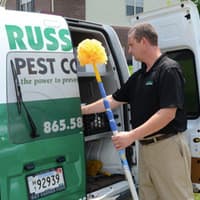Everything breaks down and, at some point, everything needs to be fixed or maintained. But there are some things in life you can do one time, and you’re good for a while; like weatherproofing your back deck or getting your driveway repaved. For most of us, getting a health check-up is not something that has to happen on more than an annual basis, and, if you’ve replaced old, leaky windows with new windows, you probably don’t have to revisit that issue for several years. These are problems that can be solved with a one-time fix–or at the very least–a once in a while fix. So, what is pest control? Is it a once in a while fix sort of issue? Or, is it something that has to be done yearly? The truth is, it is worse than you think.
Fully excluding bugs and wildlife from a home isn’t even a yearly issue. It requires year-round effort. These creatures never stop reproducing and they never stop encroaching. Your home is just another tree to build a nest in. The area under your deck is just another cave to make a den in. Your walls are food for termites and the soil around your home is no different than the dirt in the forest. Those critters don’t know that it belongs to you.
In fall, yellow jackets often come to overwinter in your eaves, and dozens of other bugs will slip through holes in your exterior walls–holes you don’t even know you have. In winter, rodents and cockroaches hide from the cold and forage in your pantry. In spring, a whole host of bugs seemingly come back to life in and around your home. Then, of course, there is summer, the time of year when every living creature is most active, searching for food and reproducing. Pests don’t take a season off.
Can’t I just seal my walls? If only it were that simple. Wouldn’t it be nice to just take care of all those holes once and for all? The problem is, holes that are letting pests into your home this winter might not have been there last winter. Homes decay and pests nibble. Worse than this, bugs don’t need much of a hole to get in. Sealing exterior walls may be an essential part of keeping pests out, but it is far from effective in and of itself.
If you want to fully exclude pests from your home, you need specialized knowledge, experience with the creatures that you are trying to keep out, and access to products that will protect vulnerable areas. You need a knowledge of pest habits and habitats, and you need to continually monitor pest pressures. That is why most folks turn to a professional pest control company.
Keeping pests out is not a one-time fix. It requires year-round service from someone who is educated in the field of pest control. If having a pest-free home is your goal, we can help. The expert team here at Russell’s Pest Control is trained and certified to get pests out and keep them out. When you’re ready to see how great life is without bugs and wildlife in your home, give us a call. We’d love to help you with that.
